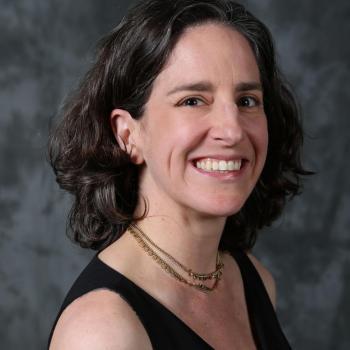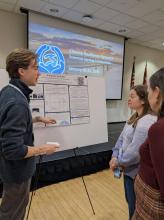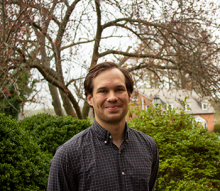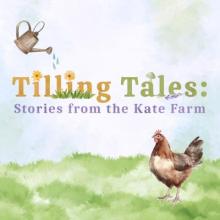
Assistant Professor of Environmental Studies Ellen Kohl recently published articles in "Gender, Place & Culture: A Journal of Feminist Geography" and "ACME: An International Journal for Critical Geographies."
‘Some we’s weren’t part of we’: intersectional politics of belonging in U.S. environmental justice activism: In this paper, Kohl uses an interaction between environmental justice activists, local city officials, and representatives of the United States Environmental Protection Agency (EPA) to establish the role of place-based identities in intersectional politics of belonging for environmental justice activists. Kohl analyzes a conversation around the word we that occurred during a Collaborative Problem Solving workshop run by EPA Region 4 to explore how mundane, everyday practices of politics of belonging impact environmental justice activists’ abilities to achieve their self-defined goal. Kohl examines how activists and city officials used the term we, colloquially a term of inclusion, as a political tool. The term was simultaneously used to make distinctions about who did and did not belong and to eliminate differences by homogenizing the broader we. For environmental justice activists, the workshop brought to the forefront the influence of geography on intersectional positionalities. While discussions and lack of specification of we may seem benign, in practice, they define belonging and exclusion, reinforcing existing power structures that perpetuate environmental injustices. From a theoretical perspective, Kohl highlights the importance of place as an intersectional axis of difference for critical environmental justice scholars. In conclusion, Kohl reflects on how intersectionality can be used to rethink conceptions of we in micro-scalar politics of belonging for environmental justice activists.
Making the Invisible Visible: Telling Stories to Animate Environmental Injustices: The women of the Newtown Florist Club (NFC), a social and environmental justice organization located in Gainesville, Georgia, use storytelling both in their day-to-day lives and through their political activism to contest the environmental and social injustices they experience. In this paper, Kohl draws on Black geographies and Black feminist storytelling to demonstrate how critical environmental justice scholars can use stories to interrogate systemic environmental injustices. Kohl integrates this theoretical framework with the stories told by NFC members to contend that stories have both theoretical and methodological saliency. Stories facilitate an integration of the structural with lived experiences by highlighting (1) the contradictions activists navigate, (2) the ways activists draw support and motivation from connections to people and place, and (3) the ways activists use the past to connect the personal and political to imagine and prefigure new futures. In conclusion, Kohl reflects on listening to activists’ stories as one way for researchers to operationalize critical environmental justice.



